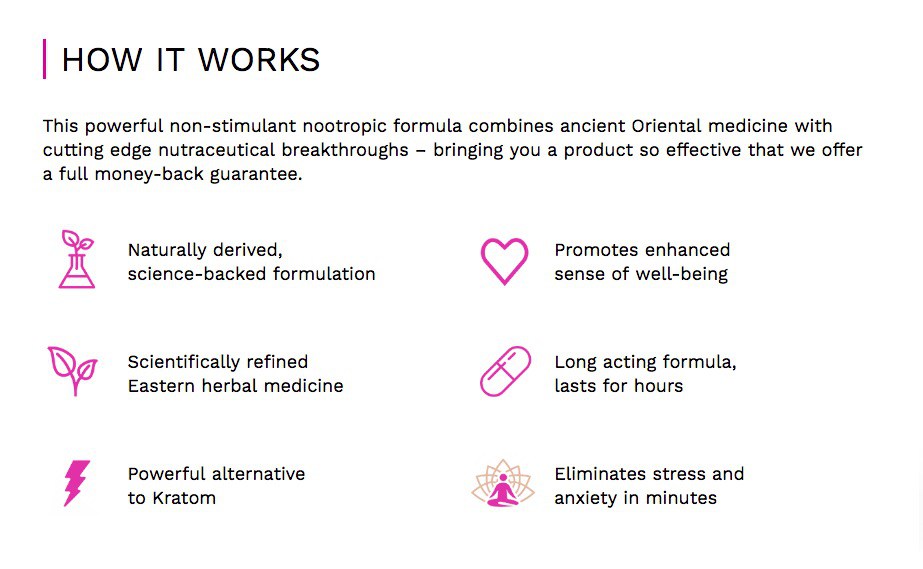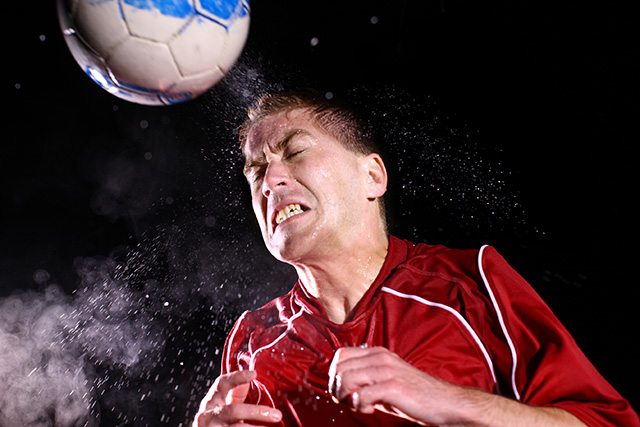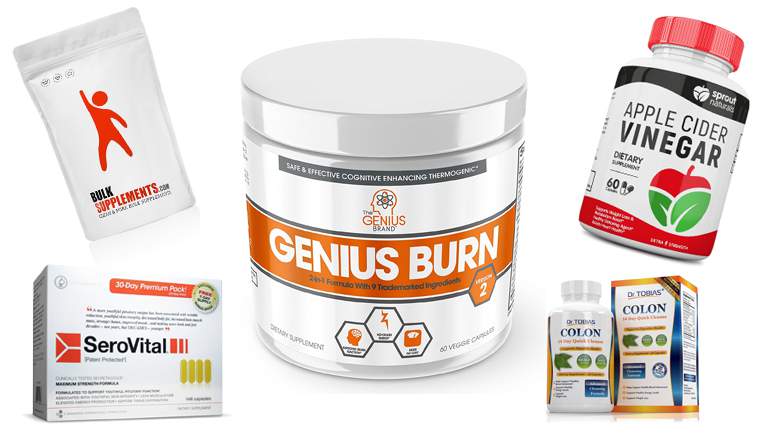Nature Knows and Psionic Success
God provides
Mind Blowing Brain Enhancement Drugs: Do They Really Work for Boosting Brain

The Usefulness of Natural Ingredients It is common to find brain fog conditions (sluggish thoughts) in humans especially when they are tired. Concentration and attention span decreases and leads to poor memory recall, and slow learning. However, our regular consumption of diets fails to reverse the deficiencies of neurochemicals that are useful in cognitive functions. People who don’t suffer from brain diseases are finding brain enhancement supplements as helpful alternative mental boosters. There are active neurotransmitters – norepinephrine, dopamine, and epinephrine that exist naturally in the brain. These brain enhancement supplements work by increasing the production of neurotransmitters; for the speedy thought process, growing brain cells, and protecting the gray matter. What Makes Brain Enhancement Drugs Effective? By reading through at an online Provasil Review; there are mind-blowing memory improvement drugs that don’t simply boost mitochondrial functions, but give mental energy.Some natural dietary supplements use a combination of herbal ingredients to enhance cognitive abilities. These ingredients play specific roles in different parts of the brain. However, stress comes daily from our regular activities to impair basic memory functions, reduce attention span, and produce anxious thoughts. These external impacts on our brain can degenerate brain cells leading to age-related mental conditions. What consumers call mind-blowing brain enhancement drugs are pills that control stress reactions. By producing high concentrations of GABA (Gamma-Aminobutyric Acid), brains cells get the natural energy to combat stress-related hormones and other imbalances. Stress is a causative factor for brain disorders, and this condition of often leads to short-term memory at an initial stage. To reverse the harmful effects of stress and anxiety; the production of active neurotransmitters (dopamine and norepinephrine) needs to be increased in the brain’s prefrontal cortex. Consequently, the potent herbal ingredients in dietary supplements act as remedies. However, it’s a common practice to use […]
Looking for a memory boost? Forget crossword puzzles and get more sleep

‘Do more crossword puzzles… play a brain-training game… take some ginkgo biloba,’ These are all frequently-cited pieces of ‘helpful’ advice to those who are trying to remain cognitively sharp—especially in their older years. However, evidence remains scant or nonexistent in most cases to support the claims that these activities actually work to keep your brain healthy. Crossword puzzles have very weak evidence of being able to improve cognition, and even where tenuous links have been found, it’s on very specific types of cognition (most notably cognitive ‘fluency’). But the benefits are thought to come more from basic participation in any cognitively stimulating activities or continuing personal education by the individual—and not the activity itself. Which begs the question what can people do to help stave off the memory impairment that comes with aging—if anything at all? Brain training has taken many forms over the past decade, and various types are available in a dizzying array of formats and styles on smartphones and desktop PCs. It has become a lucrative industry— although it suffered a major blow when the feds cracked down on the popular brain training app Lumosity—but as with many nutritional supplements, there is very little data to suggest that so-called brain training actually does any training whatsoever. Across many studies, there is unbelievably weak evidence for ‘brain training’ offering long-term benefits or anything generalizable to real-world thinking skills. If you haven’t seen the term before, ‘nootropics’ refers to supplements which are purported or marketed to boost cognitive power. The idea of nootropics certainly isn’t new, and humans have been consuming plant-based agents intended as nootropics for millennia, including: khat, coca leaves, ephedra, caffeine (coffee, tea), nicotine, ginkgo biloba, etc. Many elicit their effects through simple stimulation of the central nervous system, causing increased alertness and vigilance by […]
Don’t forget to drink water when you exercise! Hydration is key to boosting performance

( Natural News ) Athletes know that hydration is crucial to maintaining peak performance because water helps to regulate the body temperature. Water also helps lubricate the joints. According to a study, even seniors need to stay hydrated when exercising because it can help them “ reap the full cognitive benefits of exercise .” The researchers involved in the study delved deeper into the connection between hydration status before engaging in physical activities and exercise-enhanced cognition among the elderly. While earlier studies have determined that dehydration can negatively affect the brain function and exercise performance of young people, not much is known about its effect on older individuals. The researchers, who hailed from New England, said, “Middle-age and older adults often display a blunted thirst perception, which places them at risk for dehydration and subsequently may reduce the cognitive health-related benefits of exercise.”(Related: Need another reason to drink more water? Check out these amazing health benefits .) For the study, the scientists observed a group of recruited recreational cyclists. The participants had an average age of 55, and the group joined a large cycling event on a warm day, with the temperature measuring 78 to 86 degrees F. The cyclists took part in a “trail-making” executive function test where they were instructed to quickly and correctly connect numbered dots on a piece of paper using a pencil. The test was done before and after the event. Executive function involves the skills required to “plan, focus, remember and multitask.” Regular exercise can help boost intellectual health and executive function. Get CLEAN FOOD and help support our mission to keep you informed : The Health Ranger Store lab verifies everything we sell with accredited testing for heavy metals, microbiology and food safety. Certified organic facility, ISO-accredited on-site laboratory, no GMOs or […]
Herbs for regenerating bodily tissues with nutrition

( Natural News ) When you get sick, the regenerative processes of the body are overcome by degenerative ones . Regeneration is described as the regrowth of a damaged or missing part of the remaining tissue . Some body organs, such as the liver and skin, can regenerate. For example, when a part of the liver is lost as a result of disease or injury, the liver can grow back to its original size. Even so, it will not grow back to its original shape. The skin, on the other hand, is constantly being renewed and repaired. However, a lot of human tissues do not regenerate. As a result, scientists continue to search for ways to regenerate body tissues through medicines. Unfortunately, medicines based on drugs use chemicals that do not possess regenerative potential. Drug-based medicines almost always disrupt bodily self-renewal in order to hamper the symptoms against which they are applied. Listed below are natural compounds, foods, herbs, and nutrients that can help regenerate tissues in the body. Neuritogenic compounds – For nerve regeneration, there is a wide variety of natural compounds with proven nerve-regeneration effects. A 2010 study published in the journal Rejuvenation Research found that a combination of blueberry, green tea, and carnosine have neuritogenic effects – such as promoting neuronal regeneration, and stem-call regenerative effects – in an animal model of neurodegenerative disease. Other proven neuritogenic natural compounds include curcumin, lion’s mane mushroom, ginseng, huperzine, natto, red sage, resveratrol, royal jelly, theanine, ashwaganda, coffee, and apigenin, which can be found in vegetables like celery. (Related: New Study: Turmeric Compound Activates Regeneration of Brain Stem Cells .) Remyelinating compounds – Another class of nerve-healing substances called remyelinating compounds can stimulate the repair of the protective sheath around the axon of the neurons called myelin, which is […]
Become a hero to your own brain with THIS
It’s summer blockbuster season at movie theaters across the country… and that means our “silver screens” will be filled with stories about guys and gals who wake up as superheroes after taking a blow to the head or falling into a vat of nuclear waste. It’s nice to escape from reality for a couple of hours, especially hot a hot day when all you want to do is sit in a dark room with the A/C cranked up. But it turns out that certain so-called “superpowers” aren’t fiction – not entirely, at least — because you can turn your aging brain into a “Super Brain.” And all it takes is one little action to make all the difference. To reclaim a mind that’s “young again,” you don’t have to be bitten by a magic spider or submit to some experimental treatment by a mad scientist. Because there’s one tiny pill that’s been shown to help your brain snap into action and help you feel like your old self again. It doesn’t require a prescription… but you won’t find it at your local pharmacy, either. I’m sure you’ve seen some “miracle memory fixes” floating around the internet. And you’re right to be skeptical. At first, I was too. After all, it sounds like science fiction. But the cold, hard scientific FACT is that your brain can reportedly shrink nearly 1 percent every year after the age of 60 — which is the cause of many of those “senior moments” that you may have already started experiencing. (As a 60-something myself, I’ve experienced my fair share of them, too.) And after years of research, my team and I have figured out a way to address brain shrinkage… and help keep your mind from slowing down. It’s a brand-new “smart pill” that’s […]
Beef up your brain in 5 easy steps
As we age, we spend a lot of time hoping that certain things don’t “shrink” too much. Believe it or not, some people actually get SHORTER as they get older! But that’s not the worst of it. Because of all the things that can shrink over time – from your height to your savings — none is as important as your BRAIN. You want to keep that as BIG as possible! Now, I know what you must be thinking. Your brain can’t really be shrinking… can it? But according to several recent reports – including one published in Science Magazine – it’s true. In fact, by age 70, your brain could be 10 percent smaller than it was at 60. And by 80? You could lose yet another 10 percent. How much it shrinks and how fast it happens differs from person to person. But once your brain starts shrinking, it has trouble soaking up new information. That means that your thinking can become cloudy. And you could lose your precious memories. But according to the latest science, you CAN put the brakes on it. You may even be able to “reactivate” the shrunken parts of your brain… and practically FEEL your brain REGROWING! Here are five of the latest science-backed ways to boost your brain’s size AND power: 1. Pump up your brain size by pumping some iron! A study last year showed that building up your muscles can also beef up your brain, as weight-bearing exercise can literally thicken your cerebral cortex, the memory and concentration factory in your brain! And if you’re not ready to become a senior weightlifting champ, regular yoga sessions may do the trick as well. 2. Stay away from a class of drugs known as anticholinergics – which includes allergy meds – […]
The benefits of intensive meditation last for 7 years, study shows

( Natural News ) More than just a solution to overcome one’s daily dose of stress, researchers have found that the benefits of regular meditation can affect one’s life for at least seven years. According to a study conducted at University of California, Davis , the effects of joining an intensive meditation program can be expected to last for years. This was based on research where 60 participants were asked to join at least one of two three-month meditation retreats held at the Shambhala Mountain Center in 2007. Those who participated were placed in group meditation sessions and were also taught to practice Buddhist mindfulness meditation that lasted six hours per day. Initial findings showed great progress in each participant. It was observed that each person was able to deal with stress more efficiently and were able to sustain their attention for longer. During the seven-year follow-up period, 40 original participants who continued to practice meditation were assessed. The research team saw that these participants were able to maintain the improvements they gained during the initial test period and had significantly built on their capabilities to sustain attention and manage stress better. Anthony Zanesco, lead author of the study from the University of Miami said: “This study is the first to offer evidence that intensive and continued meditation practice is associated with enduring improvements in sustained attention and response inhibition, with the potential to alter longitudinal trajectories of cognitive change across a person’s life.” Get CLEAN FOOD and help support our mission to keep you informed : The Health Ranger Store lab verifies everything we sell with accredited testing for heavy metals, microbiology and food safety. Certified organic facility, ISO-accredited on-site laboratory, no GMOs or synthetic ingredients. The world’s #1 source of lab-verified clean foods and superfoods for nutritional […]
We Tried BlissX, The Latest Mood-Enhancing Nootropic

Recently, the DMNW Team was approached by BlissX , a nootropic company with a product promising to be “the most potent mood elevating compound available without prescription.” Nootropics, “smart drugs,” and “brain hacking” are huge buzzwords right now, especially in Silicon Valley and on Wall Street. The BlissX team had seen our KATY review, and reached out to ask for our signature brand of supplement review. Remember KATY? The party pill marketed as a “confident and safe high” and legal party drug? Our review was extremely critical of it back when it was making the rounds. In part, this was because their hype largely took form as sponsored content on a variety of EDM blogs. The real problem, though, was marketing an untested supplement as safe to mix with alcohol and other drugs. Oh, and it seemed to have very little noticeable effect. It turns out, though, there is some real science that certain nootropic substances are effective. It’s worth noting, for instance, that caffeine is technically a nootropic. The guys at BlissX seemed professional and responsible, requested our completely unbiased review, and as a result we decided to dive back in a second time. Our trademark skepticism is alive and well (see below), but we were surprised to learn a few things along the way we think are worth sharing. On the surface, BlissX certainly had the possibility of being another KATY: a smattering of “all-natural” herbal ingredients, the promise of a risk-free mind-altering experience, and of course, the claim that it’s “great for parties.” We were determined to go into our trial with an open mind anyway, because the world of nootropics is big and we aren’t doctors. Despite lacking a PhD, we feel what follows is an unbiased, honest assessment of both the BlissX supplement and […]
What goes on in our brain while we walk? Researchers track how vision guides foot placement

( Natural News ) Texan researchers have wondered about what our brains are thinking during walks. In a NewsWise article , they studied the way people’s vision directed the placement of their feet while walking. Their findings will benefit patients who cannot move well due to aging, Parkinson’s disease, and strokes. It will also help the development of prosthetic and robotic limbs. If you want to get across natural terrain as quickly and safely as possible, you need excellent coordination between your eyes and your body. Researchers still don’t have a good idea of how our various body parts cooperate across uneven terrain. (Related: Feel happy IMMEDIATELY by just knitting; scientists say working with your hands positively affects the neurochemistry of your brain .) Researchers tend to study vision separately from locomotion. They also hold their experiments in rigidly controlled laboratories instead of outdoors. The University of Texas in Austin (UT Austin) changed that up. Researcher Jonathan Matthis of UT Austin’s Center for Perceptual Systems noted how every part of our perceptuomotor system pitches in during visually guided walking. “To really understand it, you need to know how vision works, how planning works, how muscles work, how spines work, how physics work,” he said. His team published their findings in the journal Cell . Eye movements are the windows into the walker’s mind Matthis took advantage of new motion-capture and eye-tracking technologies to identify notable patterns between the eyes and movement . He and his team put a welding mask around an infrared eye tracker to protect its cameras from sunlight. They also used a motion-tracking suit to calibrate the tracker. In the experiment, participants crossed three different types of terrain: Flat, medium, and rough ground. The eye tracker recorded their gaze and full-body kinematics. Matthis believed eye movements […]
Living in a polluted city increases the risk for Alzheimer’s and suicide among children and young adults

( Natural News ) Living in the big city isn’t all that it’s cut out to be – mainly because of pollution, which adversely affects the health of millions of people each year. However, according to Dr. Lilian Calderón-Garcidueñas of the University of Montana (UM), children and young adults living in these megacities are at an increased risk for Alzheimer’s disease and suicide , in a study that was published in the Journal of Environmental Research . In the study, Dr. Calderón-Garcidueñas and her team examined over 200 autopsies – whose ages ranged from 11 months to 40 years – of people who lived in Mexico City. In particular, Mexico City was selected for the study since its daily concentrations of fine particulate matter (PM) and ozone are well above U.S. Environmental Protection Agency standards – which impact its 24 million residents. They tracked two abnormal proteins signaling the development of Alzheimer’s, and they found early symptoms of the condition in babies that were less than a year old. “Alzheimer’s disease hallmarks start in childhood in polluted environments, and we must implement effective preventative measures early,” she added. “It is useless to take reactive actions decades later.” The abnormal proteins were identified to be hyperphosphorylated tau and beta-amyloid. These were found in the brains of young people who lived in the city who have been exposed all their lives to PM2.5, that is, particle pollutants smaller than 2.5 micrometers in diameter . PM2.5 is 30 times smaller than the width of the human hair, and it accounts for the haze that is seen in most urban areas. Support our mission and protect your health: Organic Seeds of Life combines Red Raspberry Seed Power, Black Cumin Seed Power and Red Grape Seed Powder into the most potent nutrient-rich supplemental superfood […]
These 9 Plant-Based Foods Have Nutrients That Can Boost Your Mood

We already know that what we’re eating can have a major effect on our bodies and our physical health, but research has indicated that our diet can also affect our mood. Researchers have found that certain nutrients can help improve our mood and decrease stress, according to Greatist . Here are ten foods and their nutrients that have been shown to be natural mood-boosters. Note that nutrition, while important for good health, shouldn’t be considered a substitute for proper mental health treatment. If you’re experiencing serious depression, consider seeking help from a qualified medical professional. 1. Chia Seeds: Omega-3s Omega-3 fatty acids are known for improving our mood , and while many people think fish are the only way to get them, chia seeds are actually a good source of omega-3s as well. Chia seeds are also high in protein and fiber, making them even healthier. One ounce of chia seeds can contain 4,915 mg of omega-3s, according to Healthline . Chia seeds are good for making chia seed pudding or simply sprinkling on top of other meals. Try them in this Chia Ginger Fresca and this Chia Pudding With Blueberries ! 2. Fortified Nutritional Yeast: Vitamin B12 Vitamin B12 helps promote blood-cell formation, a healthy nervous system, and has also been found to be a natural mood-booster, according to The Cut . While plant-based vitamin B12 can be tricky to find naturally, fortified foods like soy milk, tofu, non-dairy yogurts, and nutritional yeast can be helpful for getting the B12 you need as a vegan. Just be sure to check the labels to see how much B12 the product contains. Use your fortified nutritional yeast to add a “cheesy” flavor to this Creamy Butternut Mac and Cheese and these Sweet Potato Stuffed Shells With Cashew Alfredo . 3. […]
Breaking News: Koios Releases New Powder Supplement for Sale

Koios Beverage Corp. (OTC: SNOVF) (CSE: KBEV) is pleased to announce its newly developed line of brain-enhancing nootropic instant mix powders is available for sale this week. Koios announced on May 8th, 2018 the launch of a new line of nootropic products, including a nutritional instant mix powder and daily-use capsule. The addition of these new products enables Koios to reach a broader audience and target a whole new demographic of customers. The powder is for advanced nootropic users or someone looking for stronger and more intense cognitive benefits than what is found in the line of ready-to-drink products. Until now the Koios supplements were available in liquid form, which typically are offered at weaker concentrations. The Koios powder and capsule products allow users to take a higher dose without having to consume as much liquid. The new line of capsules uses the same winning formula as the Company’s low-calorie, nutritionally-dense beverages, giving consumers the option of absorbing the active ingredients in capsule-form while on the go. "The powdered version of our supplement allows us to create a more potent form of the product, and allows users to customize it for their own needs," said Chris Miller, CEO and Director. "We wanted to pack more nutrients and nootropics into one product than any of our competition, while creating some of the better-flavoured supplements on the market." Koios uses a proprietary blend of nootropics and natural organic compounds to enhance human productivity without using harmful chemicals or stimulants. Koios products can enhance focus, concentration, mental capacity, memory retention, cognitive function, alertness, brain capacity and create all day mental clarity. The new Koios supplements can be purchased on the Company’s website ( www.mentaltitan.com ) or on Amazon at the Wishing-U-Well online store. The Company is planning to increase its online sales […]
Soccer players who score using their head are more likely to suffer from cognitive impairments

( Natural News ) If you know anyone who plays soccer, tell them to stop using their heads to score a goal or intercept the ball. An American study warns that the impressive-looking practice of “ball heading” makes it more likely for soccer players to suffer cognitive problems, a Science Daily article states . Researchers from the Albert Einstein College of Medicine (Einstein) have found that deliberately using your head for soccer tricks is much worse than unintentionally getting hit on the skull during collisions. Study leader Dr. Michael Lipton is a professor at Einstein and the medical director of MRI Services at the university’s Montefiore Medical Center. He and his team published their findings in the science journal Frontiers in Neurology . Dr. Lipton says most experts believe unintentional head impacts are responsible for most cases of diagnosed concussions in soccer. The bulk of prevention efforts are directed towards reducing those collisions. However, soccer ball heading is not harmless to the player who practices it. An earlier study by Lipton’s team showed that frequent heading causes more concussion symptoms than previously realized. Their newest research indicates that the practice can also affect brain function for at least a short amount of time. (Related: Hardcore headbanging puts concert-goers at danger of possibly fatal cranial injuries .) Bouncing soccer balls off your head can impair brain function Other research efforts have already established a link between ball heading and short-term cognitive issues. The Einstein study, however, is the first to compare its cognitive effects to those experienced during collisions and other accidental head impacts. Support our mission and protect your health: Organic Seeds of Life combines Red Raspberry Seed Power, Black Cumin Seed Power and Red Grape Seed Powder into the most potent nutrient-rich supplemental superfood powder you’ve ever experienced. […]
10 Best Weight Loss Supplements: Compare, Buy & Save

As summer rolls in, we’re all looking for that magic weight loss pill that we can swallow poolside with a beer. Just like “Limitless”, it doesn’t quite exist — but there are some supplements that can help speed up the process if you put in some effort. I spent a long time carefully putting this list together for the best weight lost supplements in 2018. They’re all different — some have stimulants, some contain Nootropics, some can be taken at night. All products on this list were tested and thoroughly examined on ReviewMeta.com to weed out fake reviews. We take your health seriously and will never suggest products with incentivized reviews. Always speak with a doctor if you are concerned about any side effects. Don’t forget: None of this stuff is magical, unfortunately. You still need to eat healthy, work out and follow an active lifestyle. These supplements help those actions out by rewarding you with more effective results. Avada Kedavra , fat cells. 1. CLA Softgels 1000mg by BulkSupplements Conjugated Linoleic Acid, more commonly known as CLA, is an Omega-6 fatty acid that’s derived from safflower oil. It’s a popular weight loss supplement for one reason: it works well for a lot of people. It helps support overall health by reducing inflammation as a powerful antioxidant. Antioxidants very effectively reduce free radical damage which can lead to signs of disease and aging. Lots of research suggests that CLA may curb appetite, improve metabolism, burn fat and help increase muscle tone. CLA can be taken as a dietary or preworkout supplement. Pros: Seriously incredible value for the price per pill CLA is one of the most widely-studied weight loss supplements No filler ingredients Boosts immune system Cons: This supplement should not be taken full time for weight loss. Please […]
7 Science-Backed Ways to Boost Your Memory

Pinterest My earliest recollection regarding brain fog or memory loss is of my mother. We were sitting in the kitchen and she was taking her daily ginkgo biloba supplement. "It’s because I can’t remember anything," she told me. I sat there wondering what it must be like to constantly forget (my brother and I would tease her about it all the time). For some reason, that moment really stuck with me, and I always assumed ginkgo biloba was this cure-all pill that kept your mind sharp forever. And while it does help with difficulty concentrating, among other things, I’ve since been curious about other ways to improve your memory. If for no other reason than it seemed to plague my mother and the proverbial apple doesn’t fall far from the tree. To find out more, I did some research on other science-backed methods. Below, find six other proven, natural ways to keep your memory intact and your kids (or future kids) from teasing you at the kitchen table. "Mindfulness meditation has been reported to enhance numerous mental abilities, including rapid memory recall," said Catherine Kerr of the Martinos Center for Biomedical Imaging and the Osher Research Center. "Our discovery that mindfulness meditators more quickly adjusted the brain wave that screens out distraction could explain their superior ability to rapidly remember and incorporate new facts." And according to the research, the change can happen in just eight weeks (even with zero previous meditation experience). In a 2013 study , researchers sought to discover if meditation would work to increase standardized test scores. Turns out, the mindfulness training improved GRE reading-comprehension scores, working memory capacity, and a reduction in distracting thoughts. Fish oil contains omega-3 fatty acids (EPA and DHA), which have shown to relieve stress and anxiety , lower the […]
Nootropics – The New-Age Smart Drugs that keeps anxiety and stress at bay!

Life can be mean at times. Pressure and schedules drain you out. No matter how hard you try, you just cannot beat the stress. You suffer from low moods and fatigue. This mental drainage extends to your personal relationships. Tensions arise. Misunderstandings take place. Nothing seems to work for you. The result is anxiety and stress. They take over your life. However, thanks to the advent of nootropics , you no longer have anxious or stressed. These smart drugs help you keep anxiety and stress at bay. They are natural and safe. Before moving onto how they can help you keep stress and anxiety at bay, read on to understand what they are- Nootropics- what are these smart drugs? Nootropics enhance cognitive functions in humans. They boost memory and help improve concentration. Memory declines after you reach your late teens. Other contributing factors that lead to memory decline include sleep deprivation, alcohol and stress to name a few. When you learn anything new, two skills are needed- concentration and memory. Memory helps you to remember. Concentration helps you to hold attention. Lack of memory and concentration creates several problems in life. You cannot perform up to expectations. You lack joy in the things you do. The result is stress and anxiety. This is where nootropics can help you improve quality of life. They are available in the form of functional food, supplements and medications. How do nootropics work? Nootropics act as vasodilators. They are medicines that open blood vessels in the body. This improves the oxygen flow to the brain. If oxygen flow is disrupted to the brain, lapses in memory and concentration begin. If not checked, mental health issues arise. Anxiety and stress start building up. Both personal and professional life suffers. Drugs that improve the overall health […]
Eating for brain health: What women need to know about diet and Alzheimer’s

Women have a greater probability of developing Alzheimer’s than men. Making certain diet changes could help keep the brain healthy. Plenty of patients still come to me after they have developed a disease, but the majority of people are now coming beforehand — so they don’t develop one. Women, especially, are focusing on the brain . After all, what’s the point in making sure you don’t get heart disease or cancer if your brain is no longer working as it once did? With June marking Alzheimer’s and Brain Awareness Month, the American Alzheimer’s Association predicts the prevalence of Alzheimer’s could triple by 2050. It currently impacts about 5.7 million Americans and remains the sixth leading cause of death, killing more people each year than breast cancer and prostrate cancer combined. If you are a woman, you have a greater probability of developing Alzheimer’s than a man. The reason why may lie in part to a hormone that has a huge impact on a woman’s health: estrogen. It protects the body from many diseases, and when stores of it dip — as they do when a woman enters menopause — our organs, including our brain, may act against us. Despite this knowledge, the debate over hormone replacement therapy (HRT) and all of its pros and cons rages on. Is it the only way to protect our mind and memory, or can diet play a role? Estrogen and brain health Best Drinks for Fat Loss Several studies indicate supplemental estrogen may in fact protect the brain from adverse changes associated with dementia and Alzheimer’s disease. A 2017 study in the journal Neurology found women who began HRT at the beginning of menopause had a decreased risk of Alzheimer’s a decade later. Other studies indicate women on HRT have better working memory […]
Here’s How To Look After Your Mental Health as an Entrepreneur

Do we equate busy with being stressed, or does being stressed make us feel more productive? Sometimes we relish it, and thrive in it. I have realised that I often do my best work when I am stressed, and when I am under pressure. And, the achievement of completing something feels even more sweeter when there is that added pressure. But, recently I am also realising what a huge toll this takes on my life, on my relationships, on the people around me, as well as my physical health. ‘Stress’, ‘Anxiety’ and ‘Worry’ are sometimes used inter-changeably but are actually different things. Worrying is a natural state of being. We worry more as we become more self-aware. Neurologically speaking, the emotional part of our brain takes over from the cognitive or reasoning side, and as the amygdala informs the cortex, stress hormones are released. So, if we can learn to control our emotions better, and recognise when worrying becomes excessive, then we can reduce the amount of stress hormones released in our brain. Anxiety is what remains once the actual stressor is gone. Often when we say that we are stressed, it might be that we are feeling anxious, and that happens when our bodies produce an excess of stress hormone, and we are in a heightened state of alert. What happens in our brain when we are stressed? Stress has huge impact on our brain and bodies. So many of us are living with chronic stress, that releases stress hormones, including cortisol and adrenaline. This can raise your blood pressure, increase adipose fat storage in the body, negatively affect the memory centre of the brain, and cause high blood pressure. The constant presence of cortisol can result in an excess of glutamate, another neurotransmitter. Glutamate also creates high […]
A single one-hour meditation session can do wonders for your heart, study shows

( Natural News ) As the years go by, more people struggle with anxiety and stress – two “mental monsters” that can significantly affect the well-being of millions every day. In some cases, these mental burdens can even affect our physical health. To address this concern, a team of researchers studied how a “ single, hour-long meditation session ” can help individuals manage their anxiety and stress. Based on data from the study, one session of mindful meditation can help undo the physical and mental side effects of stress on the body. Mindfulness refers to “ the ability to be fully present , aware of where we are and what we’re doing.” While on paper this seems like an easy task when a person is anxious or stressed, it can be hard not to be overwhelmed by our daily worries. In the last 10 years, both meditation and mindfulness have become crucial in helping individuals live healthier lives. Meditation and mindfulness are now key to lowering the risk of cardiovascular disease and other conditions that can worsen due to stress. While earlier studies concerning anxiety and meditation have revealed notable reductions in anxiety levels after weeks of meditation, this study implies that even a single meditation session can help lower anxiety and even an individual’s cardiovascular risk. Dr. John Durocher, assistant professor of physiology in the department of biological sciences at Michigan Technological University (MTU), and Hannah Marti, a recent graduate of MTU, spearheaded the research. The researchers measured the anxiety of 14 participants with a system called the Beck Anxiety Inventory (BAI) before and after the individuals joined a 60-minute introductory mindful meditation session. The scientists discovered that meditation had noteworthy effects on both the physical and mental symptoms of anxiety. The individuals who took part in the […]
These energy-boosting herbs help keep you awake without the coffee jitters

( Natural News ) If you’re like most adults, you can’t start your day without a cup of coffee. Or two, or five. But drinking too much coffee can be bad for your health , so you might want to slow down. While coffee gives you an energy boost, this effect is only temporary, making you crave another cup so you can finish working even if you’re already tired. Coffee contains caffeine, which is a potent central nervous system (CNS) stimulant. This means that caffeine temporarily energizes you. But if you have too much coffee, the constant stimulation that the CNS goes through may cause a shaky and jittery sensation. This jittery sensation signifies that your nervous system and adrenals, or the glands that regulate stress hormones, are reacting negatively to the excess stimulation. Too much coffee can then cause burnout when your adrenals have had enough. (Related: Top 10 ways to boost energy throughout the day (without resorting to caffeine or sugar) .) When this happens, you will be stuck in “a continual cycle of caffeine stimulation, over-stimulation, and fatigue.” If you keep drinking coffee, you will soon need to drink more before you can do normal tasks. However, you will still feel tired when your energy runs out. This cycle also causes burnout of your energy levels. Energy-boosting herbs and roots These herbs and roots are natural alternatives to coffee. They can keep you energized without causing the jitters. Chinese ginseng – Chinese ginseng is an adaptogen that is often used to improve longevity, raise energy levels, and strengthen the immune system. “Adaptogens” are a potent type of energizing herbs that help the body “adapt to stress and resist fatigue.” Adaptogens can boost overall vitality and energy levels. Ginkgo biloba – Ginkgo biloba is often called the […]
